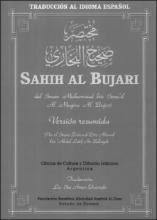Relató Abu Dharr (que Allah esté complacido con él) que algunos de los compañeros del Mensajero de Alá dijeron al Profeta (la paz sea con él): ¡Mensajero de Alá! Los ricos se han quedado con todas las recompensas, rezan como nosotros, ayunan como nosotros y dan en caridad lo que sobra de sus bienes. Dijo: “¿Es que acaso, Alá no os ha dado con que hacer caridad?, pues por cierto que decir subhanalla (Glorificado sea Alá) es caridad, decir Allahuakbar (Alá es el Supremo) es caridad, decir Alhamdulillah (las alabanzas pertenecen a Alá), decir La ilaha illa Allah (No hay dios sino Alá) es caridad, y ordenar el bien es caridad, así como prohibir el mal es caridad; Asimismo, en cada acto sexual de uno de vosotros hay caridad”. Dijeron asombrados: ¡Mensajero de Alá!, ¿Acaso satisfaciendo uno su deseo, se hace merecedor de recompensa? Dijo: “¿Acaso, si lo satisficiera ilícitamente, no se haría merecedor de castigo? pues de la misma manera, si lo satisface legalmente será recompensado”. (Transmitido por Muslim)
El profeta de la misericordia Site
Liga del Mundo Islámico - Organismo Mundial para la Presentación del Mensajero
“O Children of Adam! Take your adornment (by wearing your clean clothes), while praying
[and going round (the Tawaf of) the Ka‘bah\". [7:31]
If men or women were generous enough to go round Al-Ka‘bah in their clothes, they had to discard
them after circumambulation for good.
When the Makkans were in a pilgrimage consecration state, they would not enter their houses
through the doors but through holes they used to dig in the back walls. They used to regard such
behaviour as deeds of piety and god-fearing. This practice was prohibited by the Qur’ân:
“It is not Al-Birr (piety, righteousness, etc.) that you enter the houses from the back but
Al-Birr (is the quality of the one) who fears Allâh. So enter houses through their proper
doors, and fear Allâh that you may be successful.” [2:189]
Such was the religious life in Arabia, polytheism, idolatry, and superstition.
Judaism, Christianity, Magianism and Sabianism, however, could find their ways easily into Arabia.
The migration of the Jews from Palestine to Arabia passed through two phases: first, as a result of
the pressure to which they were exposed, the destruction of the their temple, and taking most of
them as captives to Babylon, at the hand of the King Bukhtanassar. In the year B.C. 587 some Jews
left Palestine for Hijaz and settled in the northern areas whereof. The second phase started with the
Roman occupation of Palestine under the leadership of Roman Buts in 70 A.D. This resulted in a tidal
wave of Jewish migration into Hijaz, and Yathrib, Khaibar and Taima’, in particular. Here, they made
proselytes of several tribes, built forts and castles, and lived in villages. Judaism managed to play
an important role in the pre-Islam political life. When Islam dawned on that land, there had already
been several famous Jewish tribes — Khabeer, Al-Mustaliq, An-Nadeer, Quraizah and Qainuqa‘. In
some versions, the Jewish tribes counted as many as twenty.
Judaism was introduced into Yemen by someone called As‘ad Abi Karb. He had gone to fight in
Yathrib and there he embraced Judaism and then went back taking with him two rabbis from Bani
Quraizah to instruct thpeople of Yemen in this new religion. Judaism found a fertile soil there to
propagate and gain adherents. After his death, his son Yusuf Dhu Nawas rose to power, attacked
the Christian community in Najran and ordered them to embrace Judaism. When they refused, he
ordered that a pit of fire be dug and all the Christians indiscriminately be dropped to burn therein.
The Sealed Nectar
******




